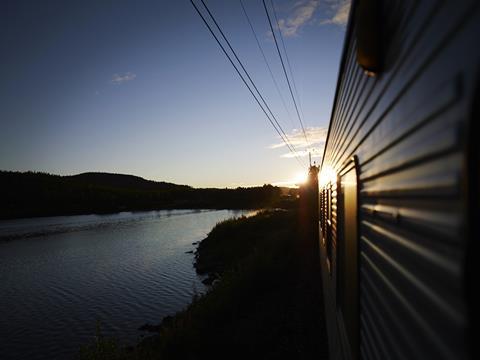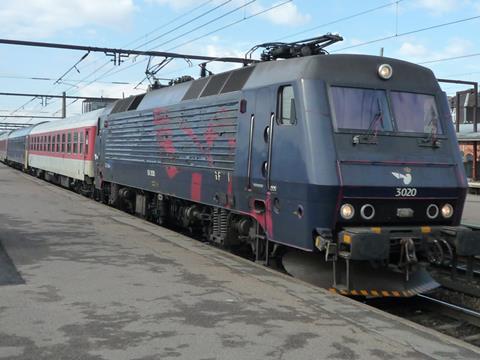
EUROPE: Trafikverket has recommended a Malmö – Köln - Brussels overnight train as the best option for increasing international rail travel to and from Sweden, although it has identified a number of hurdles that must be overcome.
The transport administration was commissioned by the Swedish government last year to investigate the conditions for procuring regular night trains to cities in continental Europea. Its final report issued on April 27 provides a broad overview of the different options for consideration.
Market study
Assessing the potential for night trains, Trafikverket found that rail currently has just 1% of the travel market between Sweden and the European continent, with airlines taking a greater share as distances increase. Most international travel is by day train, apart from Snälltåget’s seasonal Malmö – Berlin service using the Trelleborg – Sassnitz train ferry.
Nevertheless, a survey of potential users found ‘a clear public interest’ in the idea of night trains to Europe, with 21% of people surveyed finding the concept ‘very attractive’ 41% describing it as ‘quite attractive’.
Technical constraints mean that ‘it is often necessary to change locomotives and personnel when crossing a national border’, and the report warns that this has ‘a negative impact on both finances and travel times’, which makes it difficult for rail to compete profitably on routes served by low-cost airlines.
The study notes that ‘there are significantly more night trains in Eastern Europe, compared to the western parts’, where ÖBB is the dominant player with ‘a relatively extensive network’. In the domestic market, SJ currently operates overnight trains to Norrland and Narvik and to Jämtland, which are procured under a public service obligation; the Norrland route is due to transfer to Vy Tåg in December.
Preferred route

Assuming that various legal, technical and operational hurdles can be overcome, Trafikverket says an ‘appropriate first step’ would be to procure an overnight service to Germany and Belgium via Denmark. In its interim report issued on January 15, Trafikverket had proposed a pilot route linking Malmö and Köln. However, further investigation found that it would be possible to extend the service to Brussels, according to Head of Unit Anna Fällbom. ‘Based on capacity and technical aspects, that is more complex, but it is still possible.’ Fast day connections would be available from Köln to other parts of Europe, including Paris.
In terms of train paths, the report notes that capacity is limited in Hamburg, Köln and Brussels in both mornings and early evening, so it may be necessary to be ‘flexible with the timetables’. While it would be desirable for the night train to link Stockholm to Brussels, Trafikverket says it would be ‘difficult to achieve reasonable departure and arrival times’. End-to-end journey time would be ‘at best 17 h’, although this could be cut by 2 h when the Fehmarn Belt fixed link opens.
A shorter alternative might be a service from Stockholm to Hamburg, although this could be impacted by Snälltåget’s plan to operate a Stockholm – Malmö – København – Hamburg – Berlin overnight train from 2021.
Practical hurdles
However, Trafikverket warns that there are ‘currently no opportunities to buy traffic that extends to or through Germany’ under a PSO, as the German transport ministry regards long-distance rail transport as a commercial business, which should not be supported. Without an agreement, the procurement of the desired overnight trains ‘could not be designed in accordance with the purpose and the wording of EU regulations’. The report suggests a possible compromise whereby the trains are only supported in Sweden and Denmark and operate on a commercial basis beyond that point. The European Commission has sought legal advice over whether a PSO may apply to part of a route in such cases, but no ruling has yet been received.
Direct award
In terms of procurement, Trafikverket says a direct award would be quicker than competitive tendering, but the ‘appropriateness’ of this must be weighed against the broader requirements and care must be taken to check that the operator is ‘not overcompensated’. A direct award could enable the pilot service to start from 2022, assuming that the other constraints have been addressed, but tendering would add another year.
Trafikverket recommends that the initial contract should run for four years, providing sufficient time to establish and evaluate the service, with an optional extension of up to two years.
The procurement of suitable rolling stock is also an issue, with few sleeping cars available that do not require extensive renovation. New stock could be ordered, but that would take time. Trafikverket says the rolling stock could be leased or bought directly by the organising authority or supplied by the chosen operator under the terms of the contract.

















